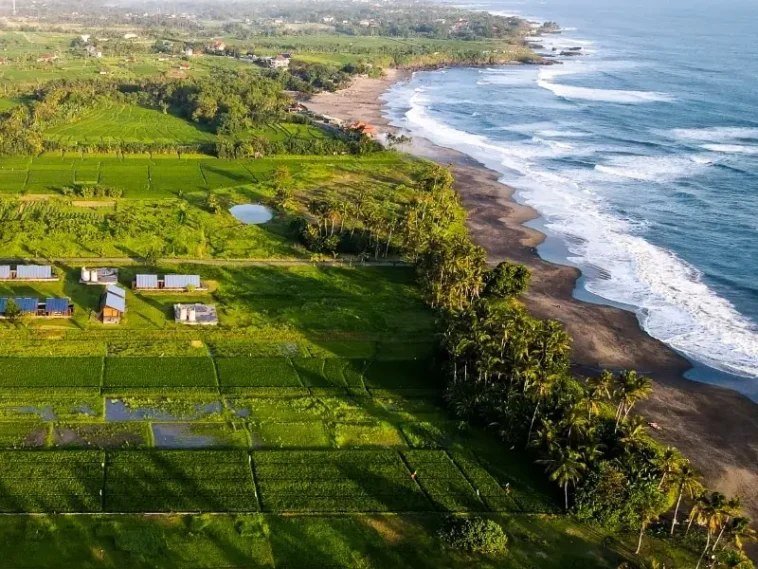Purchasing land in Nusa Penida can be an exciting opportunity for investors and individuals looking to tap into Bali’s growing market. However, many buyers risk overpaying due to unfamiliarity with local laws, market trends, or misleading advice from sellers. Knowing the right steps and precautions can help ensure you make a sound investment without falling into the trap of inflated prices.
Key Points:
- Set a clear budget before looking for land.
- Conduct thorough research on local market prices.
- Always verify land titles and ownership history.
- Seek professional legal and real estate advice.
- Beware of agents or sellers pushing for quick decisions.
- Understand zoning regulations to avoid future complications.
Initial Research: Price Trends and Market Overview

Before anything else, you need to understand the price range for land in Nusa Penida. Real estate prices vary significantly across different regions of the island. Some areas are more popular due to proximity to attractions or better infrastructure, while others are more remote.
For example, coastal areas, especially those close to tourist hotspots, tend to fetch higher prices. By keeping an eye on local listings and working with reputable agents, you can get an idea of the price per square meter.
To stay informed, it’s crucial to consult trusted sources like Penida Land. They specialize in Nusa Penida real estate, providing options with affordable prices and strong investment potential
If you take the time to compare prices across multiple sellers, you’ll quickly spot inflated offers. Look beyond the initial price and consider factors like infrastructure, access to water, and electricity. Also, keep an eye on future developments in the area, as projects can drastically increase property values.
Plan a Budget and Set Clear Expectations
Deciding on a clear budget helps keep your search focused. Without a set limit, you may find yourself swayed by extravagant plots that seem appealing but could strain your finances. Factor in additional costs like taxes, legal fees, and registration when setting your budget.
It’s important to note that the advertised price isn’t always the final amount you’ll pay. Negotiations can lead to more favorable terms, but they require solid knowledge of market prices and local customs. Landowners might quote higher prices to foreigners, assuming they are less informed about market standards. Setting a maximum price before starting negotiations helps you avoid overpaying.
Verify Ownership and Legal Documents

One of the most important steps in purchasing land is verifying that the seller has a legitimate claim to the property. Cases of disputed ownership or fraudulent titles are not uncommon. Make sure the seller presents a SHM (Sertifikat Hak Milik), which is the highest form of ownership certificate in Indonesia.
If the land you’re considering doesn’t have a SHM, avoid proceeding with the transaction. Some sellers might present temporary or incomplete certificates, hoping to finalize the proper paperwork later.
This opens up the risk of future disputes, which could delay or even invalidate your purchase. Always seek the assistance of a local notary to verify the authenticity of the documents.
You should also check for existing disputes, liens, or debts associated with the property. Hiring a trusted legal advisor familiar with Indonesian property laws ensures you won’t run into issues after finalizing your purchase. Without proper verification, you could be stuck in legal battles that waste time and money.
Zoning and Land Use Restrictions
Not all land in Nusa Penida is suitable for development. Zoning regulations determine what type of construction is allowed in certain areas. For example, some plots may only permit residential projects, while others are designated for commercial use or agricultural purposes. Failing to understand the zoning rules before buying could limit your ability to develop the land as you planned.
Before committing to a purchase, verify the zoning classification of the land. This information can be obtained through the Badan Pertanahan Nasional (BPN), the national land agency of Indonesia. Check for any restrictions on building height, proximity to water, or infrastructure requirements.
In some cases, you may need additional permits if the land is located near protected areas, such as beaches or forested regions. Make sure you are aware of all the necessary permits and regulations to avoid legal complications later.
Hiring a Reputable Real Estate Agent

Working with a local real estate agent can save you time and stress. However, not all agents operate with the buyer’s best interests in mind. Some agents may have close relationships with sellers and could push for a higher price to secure a larger commission.
When choosing an agent, look for someone who understands your budget and investment goals. A trustworthy agent will provide a range of options, giving you access to land that suits your needs rather than pushing a particular plot. It’s worth asking for recommendations from other buyers or conducting online research to find reliable agents.
Additionally, you should avoid agents who pressure you into quick decisions. Take the time to visit each plot you’re considering and ask questions about access to infrastructure, future development plans, and other key factors. A good agent will be transparent and patient throughout the process.
Negotiating the Price
Many sellers, especially in popular areas, expect buyers to haggle. In some cases, you could reduce the price by as much as 10-20%, depending on the seller’s situation.
Start by making a reasonable initial offer that falls slightly below your budget. Avoid making a very low offer, as this could offend the seller and derail negotiations. Focus on highlighting any weaknesses in the property that justify a lower price, such as limited road access or lack of utilities.
If the seller is unwilling to lower the price, consider negotiating other terms, such as payment schedules or including additional amenities, like existing buildings or infrastructure improvements. Flexibility during negotiations can help you get a better deal even if the price remains firm.
Beware of Overpricing Tactics
Some sellers may inflate their prices, assuming that foreign buyers have a higher budget. They may also use the potential for future development as a reason to justify higher prices, even if those developments are uncertain or years away.
Be cautious of any seller who insists that the land’s value will double within a year or guarantees returns on investment. Land values do increase in Nusa Penida, but the rate of growth depends on many factors, such as infrastructure, tourism trends, and government policies.
To avoid overpaying, always compare multiple listings and get a second opinion from a real estate expert. Relying on an independent party’s valuation can help you understand whether you’re being asked to pay a fair price or an inflated one.
Closing the Deal

Once you’ve settled on a price and completed all legal checks, the final step is to close the deal. This involves signing a sale and purchase agreement, which must be prepared by a notary and signed by both parties.
The sale and purchase agreement should include details about the property, such as its size, location, and any existing buildings or improvements. It should also specify the agreed-upon price and payment schedule. Both parties need to sign the agreement in front of the notary, who will then register the transaction with the BPN.
Once the agreement is signed, you’ll receive an official certificate of ownership. Make sure the certificate is properly transferred into your name and filed with the local authorities to complete the transaction.
Conclusion
Purchasing land in Nusa Penida offers significant investment potential, but only if done with the right preparation. By setting a clear budget, verifying ownership, understanding zoning laws, and working with a reputable agent, you can avoid overpaying and ensure a secure purchase. Keep these tips in mind as you navigate the market, and you’ll be well on your way to making a sound investment on the island.



